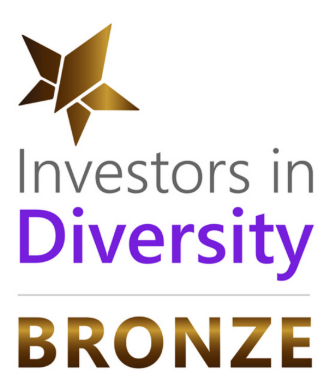'Unfinished Business': the work of ensuring quality and qualifications
To mark ten years in existence, QQI hosted a conference in late October 2022 focused on exploring the ways system change could be effected by strengthening strategic partnerships. At the end of two days of presentations, panel discussions and breakout sessions, proceedings were brought to a reflective close with these remarks by journalist, consultant and commentator on educational topics, John Walshe.
"Life was much simpler years ago. So were the separate education and training systems.
Nobody talked about thematic units, modules, or statements of learning. There were no TUs, ETBs, FET, QQI, or SOLAS, while apprenticeships were available in a relatively limited number of trades. And micro-credentials were still waiting to be discovered.
At that time, there was little need for career guidance in schools as your choices were so limited, and there was no need for the CAO as only a tiny minority ever went on to higher education. If your parents didn’t decide your future for you, there was usually a relative or family friend who could get you a ‘start’ in a job or apprenticeship. There was always the UK or US, of course. But usually these were unskilled labour jobs, and it’s here where the lack of decent qualifications can be seen most clearly and tragically to have held back so many bright young Irish men and women from ever realising their true potential.
It couldn't last.
If it had, many of our citizens wouldn't have worthwhile qualifications, our economy wouldn't have grown, and our standard of living would have remained among the lowest in Europe.
Instead, our education and training underwent significant reform and structures were put in place to ensure quality and qualifications.
With awards being made by Irish and overseas bodies, however, many learners became confused by the different qualification arrangements. Bringing coherence to these separate developments became increasingly necessary.
The first step in addressing these challenges came with the creation of an easily understandable National Framework of Qualifications (NFQ) in 2003. Getting the main players in education and training, including the universities, to agree on where their awards should land on the framework required lots of patient discussions. It was a significant achievement, reached here ahead of many other more advanced countries.
The NFQ brought a sense of order to the landscape of qualifications and the Irish public quickly embraced it. So too did employers, as they could see their skill needs would be met by young people possessing relevant qualifications. Without that vote of confidence, the education and training reforms taking place at that time could have faltered and with it, the economy. So, it's important that we maintain that confidence.
Unfinished Business
The creation of the NFQ, then, which celebrates its 20th anniversary next year, was transformational.
So too was the establishment many years ago of the awards and quality assurance agencies that eventually merged into QQI.
Why?
Because they allowed further and higher education to share the same awards space. They brought more coherence to the education and training systems. They won acceptance from the public, from business, and from education.
But public confidence needs to be constantly renewed, in Ireland and elsewhere.
For there are major threats to that confidence, such as those presented by cheating services, which led to the recent and very welcome launch of the Global Academic Integrity Network (GAIN) at the QQI 10th anniversary conference.
But should there be equal concern about the global rise in firsts or 2:1 degrees in Australia, the UK and other countries, including our own?
Irish universities used to be very parsimonious with their top awards. But not anymore. Can all higher education institutes worldwide say that the 25-40% who get firsts or 2:1s possess the critical and analytical skills that employers say they need? I know that shouldn’t be the main KPI for a degree. But there are already indications that some employers are bypassing academic credentials because they simply do not believe a first serves as a reliable indicator of a graduate’s critical or analytical skills.
In Ireland there is other new and unfinished business specifically that needs to be attended to.
The most obvious unfinished business is the legacy issue of two qualifications at Level 6 of the framework: one for further education and one for higher education. A comparative and detailed analysis by ECCTIS for QQI addresses this issue. It leaves us with a challenging question - would the qualification system benefit from having just one award at level 6 to be used by both further and higher education?
This in turn leads to another question - what additional changes need to be made to help bring about the more unified tertiary education sector to which the current government is so clearly committed?
There are other questions that also need answers so that our system is in tune with learner and societal needs:
- Have we the balance right between empowering and regulating institutions, in both public and private sectors?
- Is the NFQ being undermined by the growth of professional diplomas and other awards that are not on it?
- How do we quality assure and validate non-formal learning?
- How can the system promote equality, diversity, and inclusion?
- How can micro-credentials be made available on an equitable basis and not just for the highly educated and highly skilled?
- What do we need to do to adapt to blended and digital learning, post-Covid?
- Is our system responding quickly enough to emerging skills needs in areas such as artificial intelligence, the Green Agenda, climate change, and so on?
- In an era of lifelong learning, how do we create a more learner-centred qualifications system?
Taken for Granted
We are rightly celebrating the founding of QQI. But I detect a tendency to take quality assurance, the NFQ and QQI for granted simply because they’re there. They seem solid, dependable, and permanent so we take them as given. Similarly, we don’t stay awake at night worrying about the European Qualifications Framework (EQF) which helps improve the transparency and portability of people’s qualifications by making it possible to compare qualifications from different countries and institutions.
The EQF operates on the assumption that individual countries ensure the quality of their qualifications, through agencies like QQI and initiatives like the NFQ. But quality is elusive. It needs nurturing constantly – not just here but in other countries too. You know what quality is when it’s no longer there. Any slippage in a country’s quality assurance measures can cause serious reputational damage, affecting not just the education system but the economy.
Assuring the quality and rigor of qualifications requires continuous dialogue among a range of actors, proportionate legislation, and clear institutional roles and functions. Stakeholder engagement – which must include students – is crucial to that dialogue. And engagement is a marathon, not a sprint. You have to be in it for the long run.
The Irish Quality and Qualifications Forum being established by QQI to encourage and stimulate system-wide collaboration, engagement, and insight-sharing, should be the ideal place for such engagement.
Conclusion
A lot has been achieved in the past few decades. The tenth anniversary of the creation of QQI offered a good opportunity to look again at our quality and qualifications architecture and to remember that the work of ensuring quality and qualifications is never done.
A long time ago when I was a cub reporter, one of the dominant figures in both agriculture and higher education was a Dr Tom Walsh, who was born in Co Wexford. Actually, there were two well-known Dr Tom Walsh’s, both born in the same county within a few years of each other.
One went on to found the Wexford Opera Festival. The other was founding director of An Foras Talúntais (now Teagasc) and also chair of the National Council for Educational Awards, which became the Higher Education and Training Awards Council (HETAC) and which, in turn, was subsumed into QQI.
He was an extraordinary and inspiring chair of the Council. He never believed in resting on your laurels, no matter what had been achieved, and he often used a phrase that resonates today as quality assurance and qualifications face new challenges: “there’s a job of work to be done”.
He was right. There is."
Interested in learning more? Discover and explore a selection of recordings, presentation slides and lightning talks delivered at #QQI10 here


